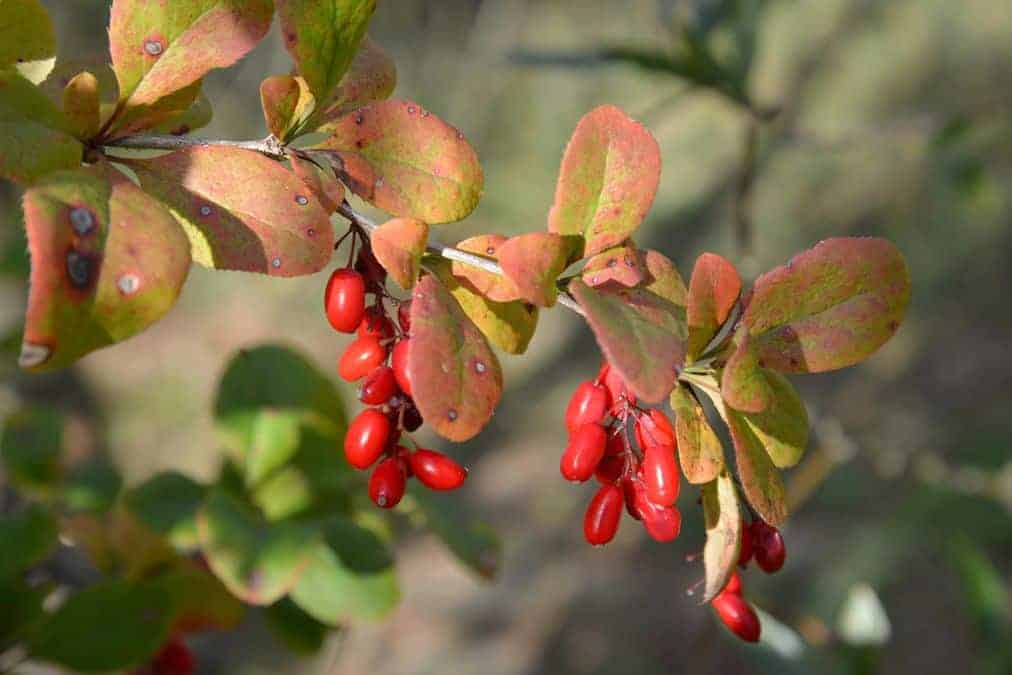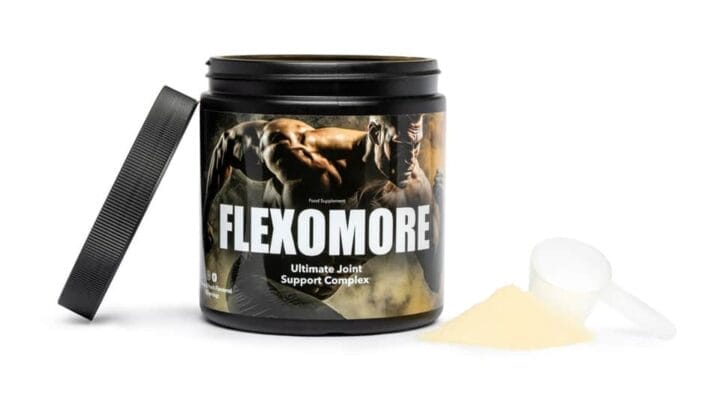
Berberis and berberine – what are they and how do they affect the human body?
There is no denying that natural medicine has been gaining popularity in recent years , and an ever-growing group of people want to take care of their weakened health in just such a way. One of the more highly regarded varieties of alternative medicine is certainly herbalism, also known as phytotherapy. It uses a number of herbs and plants with medicinal properties, such as barberry, whose composition and effects are worth learning more about, especially one of its components, berberine.
Contents
- 1 Why use herbs and medicinal plants?
- 2 What is barberry?
- 3 What nutritional compounds determine the action and properties of barberry?
- 4 What is berberine?
- 5 What is the recommended dosage of berberine?
- 6 In which cases should barberry be used?
- 7 Are there contraindications and side effects of using barberry and berberine?
Why use herbs and medicinal plants?
Herbal medicine is one of the oldest ways of dealing with various ailments, having been used around the world for thousands of years. Of course, plants or herbs cannot be used as a miracle cure for all diseases, many require the intervention of a doctor and the use of appropriate pharmaceuticals.
However, it is definitely worth using them to support the healing process or strengthen the body weakened for various reasons, which does not mean that on their own they cannot cope with some ailments. Among the most important advantages of phytotherapy, experts in this field include:
- fewer side effects than with artificial chemicals;
- the associated higher level of safety of use;
- greater availability of herbs and other plants, many of which simply grow in meadows or gardens;
- the multi-level range of positive effects, on almost all systems and organs of the human body;
- the abundance of nutrients, primarily valuable vitamins and minerals;
- availability in many forms, not only dried leaves or flowers, but also ready-made herbal teas and dietary supplements having strictly defined doses of herbs in their composition.
What is barberry?

The source of many substances valuable to health, including berberine, whose effects we will describe in more detail in a moment, is the common barberry shrub (Berberis vulgaris), which grows widely throughout southern and central Europe and is also found in our country. It grows from 1.5 to even 3 meters in height, and belongs to the numerous barberry family.
It develops a stem covered with characteristic thorns and small elliptical or egg-shaped leaves, up to 6 cm long, gathered in bunches growing on short stems. The flowering period of barberry is in May and June, and its flowers are gathered in clusters and have an intense golden or yellow color.
They also emit an equally intense fragrance, and later develop into small, 1-centimeter-long fruits that are red in color and have a sour taste somewhat reminiscent of lemon. They are the material for herbal medicine and are harvested in September, just before the ripening process is complete, in order to preserve their full nutritional properties.
What nutritional compounds determine the action and properties of barberry?
As we have already mentioned, barberry has numerous active substances in its composition, which, when properly dosed, can noticeably improve health. At the same time, they determine an extremely broad spectrum of action and equally numerous medicinal properties. It is worth mentioning at the outset that barberry fruits are characterized by a relatively high caloric content, since their 100 g is as much as 332 kcal.
This does not negatively affect the whole plant, in which we can find almost everything that the body needs to maintain full health and cope with the symptoms of various ailments. The most important compounds in the composition of barberry are:
- Vitamin C, or ascorbic acid, and there is more of it in this plant than in an equivalent amount of lemon and other citrus fruits. It is a powerful antioxidant that effectively eliminates from the body the free radicals that threaten it, at the same time reduces cell damage caused by them, lowers and regulates blood pressureblood pressure, seals the walls of blood vessels, strengthens the immune system, promotes collagen production, lowers the level of “bad” cholesterol LDL;
- Vitamin E, known as the “vitamin of youth”, also having antioxidant properties, inhibiting the processes of natural aging of the skin, allowing to maintain normal blood clotting. At the same time, it supports eyesight, increases muscle performance and cell sensitivity to insulin, and is essential for the functioning of the nervous system;
- flavonoids, another compound of natural, plant origin, having, among other things, antioxidant and anti-inflammatory effects, allowing to better cope with inflammation and infections. They are allergy-friendly, relieving various allergy symptoms and lowering histamine levels, they also slow down the activity of of carcinogenic compounds, support the brain and nervous system, improve memory, concentration and general cognitive abilities;
- tannins, with antibacterial and bacteriostatic effects, inhibiting the growth of various groups of pathogenic bacteria. They also have detoxifying properties, helping to remove the effects of heavy metal poisoningheavy metals, have a beneficial effect on the digestive system, reduce the effects of skin irritation, itching and burning;
- Carotenoids, another compound that helps get rid of harmful free radicals, protecting cells from oxidative stress, restoring firmness, elasticity and resilience of thetion of the skin, slowing down its aging process, especially under the influence of UV radiation, reducing the risk of cardiovascular diseases, and supporting the treatment of certain infectious diseases.
What is berberine?
Various varieties of barberry, especially the common one, also have numerous mineral salts in their composition, and one important component that needs to be singled out. This is berberine, a compound belonging to the group of isoquinoline alkaloids, named after the plant itself, which has an exceptionally broad effect on our health.
Berberine is a crystalline substance of yellow color, with a bitter taste, mostly used as an ingredient in pills, dietary supplements mixed with other equally valuable active compounds. It is safe to say that it is the one that determines the action of berberine, itself having properties:
- antioxidant, antibacterial, antifungal and anti-inflammatory, it is considered an extremely powerful and effective natural antibiotic;
- hypoglycemic, or reducing blood sugar levels that are too high;
- regulating lipid and cholesterol levels;
- accelerating metabolic processes, leading, among other things, to more efficient fat burning;
- counteracting certain cardiovascular diseases, including by lowering and regulating blood pressure that is too high;
- strengthening a weakened immune system;
- improving intestinal microflora;
- promoting bile secretion and relaxing the smooth muscles of the digestive system.
What is the recommended dosage of berberine?
If berberine and, above all, the berberine it contains are to benefit many aspects of health, the recommended dosage must be strictly adhered to. It specifically concerns berberine, the safe daily amount of which should range from 500 to a maximum of 1,500 mg, divided into 2-3 servings. At the same time, it should be remembered that during the use of preparations that have berberine extracts in their composition, alcohol must not be consumed.
In which cases should barberry be used?

The numerous health benefits of barberry itself and the berberine contained in it cannot be denied, so it is worth summarizing in a few subsections its positive effects on:
- functioning of the liver, intestines and other parts of the digestive system;
- support of weakened immunity, important especially during the flu season and other infections;
- acceleration of metabolic processes, which can have a simultaneous effect on weight loss, fighting overweight and obesity;
- the health and appearance of the skin, helping, among other things, in the fight against acne; it also accelerates skin regeneration processes by improving the level of skin hydration;
- reducing the negative effects of stress and other states of nervous tension, thanks to its calming and soothing effects;
- maintaining proper blood sugar, cholesterol and lipid levels that are safe for health;
- getting rid of pathogenic free radicals;
- supplementing the deficiencies of the above-mentioned nutrients;
- supporting the digestive processes, primarily proteins, sugars and fats;
- the urinary system, and the diuretic effect makes it possible to more efficiently cleanse the body of toxins and other unnecessary products of metabolism;
- alleviating the symptoms of PCOS, or polycystic ovary syndrome.
Are there contraindications and side effects of using barberry and berberine?
Despite its undoubted benefits, barberry is not advisable for everyone who would like to use it. It is worth knowing in advance about certain contraindications that prevent this, and it should not be used primarily during pregnancy and lactation, and is not recommended for children. Caution should be exercised when taking certain groups of drugs at the same time, especially for the liver, lowering blood pressure and antibiotics such as tetracycline.
As for side effects, they mostly occur only when there is an overdose of berberine, excess of which can accumulate in the liver and heart. It should definitely not be taken lightly, and you should expect such alarming symptoms as:
- gastrointestinal disorders, vomiting, diarrhea constipation and nausea;
- abdominal pain;
- swelling, enlargement of the liver or kidneys;
- higher risk of jaundice and gallstones;
- convulsions;
- rapid and health-threatening drop in blood pressure;
- an irregular, slower heart rate.
Fortunately, these symptoms usually pass on their own after berberine withdrawal, but if they persisty, it may be necessary to consult a specialist, and it’s also a good idea to talk to your doctor before you start using it.
Sources:
- https://www.healthline.com/nutrition/berberine-powerful-supplement
- https://www.healthline.com/nutrition/berberine-diabetes
- https://www.healthline.com/nutrition/berberine-pcos
- https://www.healthline.com/nutrition/vitamin-c-benefits
- https://www.healthline.com/health/all-about-vitamin-e
- https://www.healthline.com/health/what-are-flavonoids-everything-you-need-to-know
- https://www.healthline.com/health/bioflavonoids



